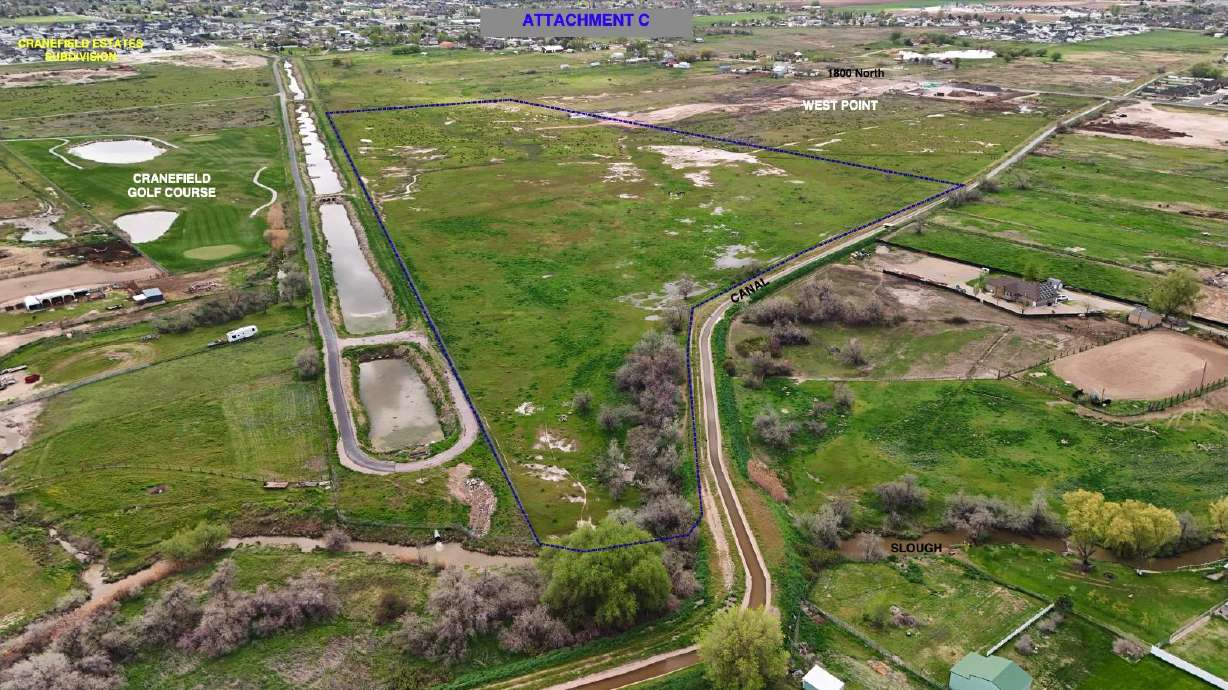Estimated read time: 3-4 minutes
- The developer behind a Clinton housing proposal is seeking residents willing to pull their names from petitions that challenge his plans.
- If enough pull their names, the challenge would stall.
- The project at the center of the controversy in the Davis County locale calls for 341 housing units, 266 townhomes and 75 single-family homes.
CLINTON — The controversy over a proposed housing development in Clinton has entered a new phase, with the developer trying to convince signatories to withdraw their names from petitions.
At the same time, both sides are charging each other for spreading misinformation about the plans.
The Clinton residents seeking a referendum on the rezone approved last August by city leaders that allows the 341-unit housing development to proceed garnered more than enough signatures to put the issue on the ballot next year. Now, a new phase of the process has commenced, allowing signatories to pull their names before officials make a final tally, and the developer has recruited a firm to search for any residents inclined to do so.
"We're out educating people on the misinformation, and if those people feel that they signed based off of that misinformation, then we're happy to retract their signature for them," said Mike Hatch, the developer pursuing the housing project. Among the misinformation that's been spread, he said, is that "high-rise" apartments are proposed — they aren't — and prices for the planned housing units have already been pinpointed, also not the case.
One of the main drivers behind the initial petition drive, Andy Larsen, is making his own misinformation charges as representatives from the firm aiding Hatch, Gather Utah, knock on doors searching for people willing to pull their signatures.
Some of the Gather Utah canvassers, Larsen said, have low-balled the number of townhomes proposed or sidestepped the issue as they've talked to Clinton residents. The project calls for 266 townhomes and 75 single-family homes, and skeptics worry the proposed townhomes would overwhelm the area where they'd be built, given other nearby development initiatives.
Moreover, a canvasser told a resident he was sent "by the state" to discuss the issue, according to video from a doorbell camera supplied by Larsen, when in fact Hatch is spearheading the effort. The canvasser also said if the rezone question were put on the ballot and approved by voters, the land in question couldn't be developed for 10 years.
"Nonsense. If the referendum were successful on the ballot in 2025, it would only overturn the City Council's zoning decision. Then the developer could file a new application right away and create a new plan with the city," Larsen said. If citizens "feel they have been misled" in withdrawing their signature and want to stay on the petition, he advised them to reach out to the Clinton clerk's office.
In response to accusations that project foes have spread misinformation, Larsen said petitioners never charged Hatch with planning high-rise apartments — at least as far as he knows.
Hatch, for his part, said he'd need to see the doorbell video in question containing the alleged misinformation before responding. He also invited residents "to reach out" with any legitimate complaints, saying, "Our guys have been instructed to correct misinformation."
Development can be a touchy issue along the Wasatch Front as more and more open space gives way to homes, and the Clinton plans have struck a nerve among some worried about overdevelopment in their corner of northwest Davis County. The project critics needed 3,548 valid signatures from registered voters in Clinton to get a vote on the August rezone decision on the ballot and have mustered 3,883, at least so far, according to a review of the petitions by the Davis County clerk's office.
Hatch noted the demand for housing as Utah's population grows and said the area, despite the concerns of critics, can handle the housing he proposes. He has until around Jan. 9 to seek out petition signatories willing to withdraw their support, and if he gets enough, pushing the signature total below 3,548, the petition effort fails.
If the total remains at or above 3,548 after Jan. 9, city officials would have to make sure the signatories are evenly distributed across the city, with at least 29% of the total in each of three of Clinton's four districts. The issue, if it advances, would likely be on the November 2025 ballot, according to Larsen.









